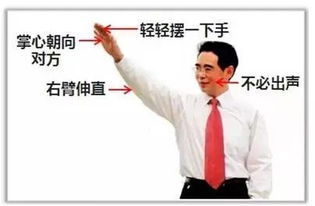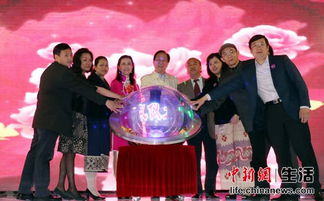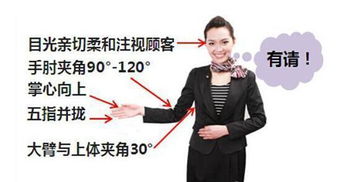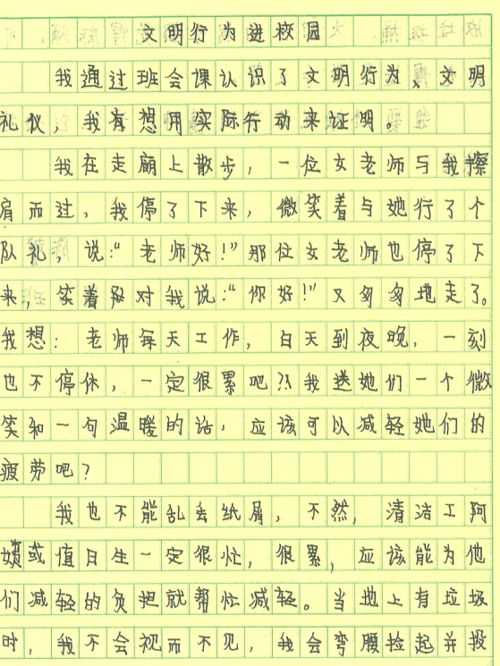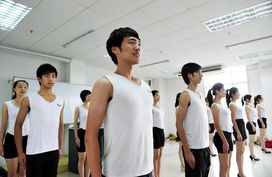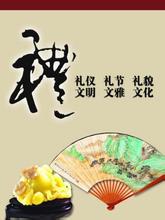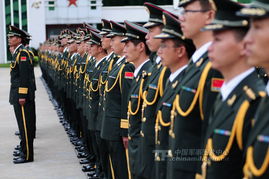1.中国餐桌上的礼仪有哪些?(用英语回答)
Chinese table mannersThese are mostly concerned with the use of chopsticks. Otherwise generally Chinese table manners are rather more informal, what would be considered rude in other cultures such as talking with the mouth full may be acceptable but better not to do so. * Chopsticks must always be held in the correct manner. It should be held between the thumb and fingers of the right hand, * Chopsticks are traditionally held in the right hand only, even by the left-handed. Although chopsticks may now be found in either hand, a few still consider left-handed chopstick use improper etiquette. One explanation for the treatment of such usage as improper is that this can symbolise argument, as the chopsticks may collide between the left-handed and right-handed user. * When communal chopsticks are supplied with shared plates of food, it is considered impolite to use your own chopsticks to pick up the food from the shared plate or eat using the communal chopsticks. An exception to this rule is made in intimate family dinners where family members may not mind the use of one's own chopsticks to transfer food. * It is considered impolite to use the blunt end of the chopsticks to transfer food from a common dish to your own plate or bowl. Use the communal chopsticks instead. * Never wave your chopsticks around as if they were an extension of your hand gestures, bang them like drumsticks, or use them to move bowls or plates. * Decide what to pick up before reaching with chopsticks. Do not hover around or poke looking for special ingredients. After you have picked up an item, do not put it back in the dish. * When picking up a piece of food, never use the tips of your chopsticks to poke through the food as if you were using a fork. Exceptions include tearing larger items apart such as vegetables. In informal use, small, difficult to pick-up items such as cherry tomatoes or fishballs may be stabbed but this use is frowned upon by traditionalists. * Chopsticks can be rested horizontally on one's plate or bowl to keep them off the table entirely. A chopstick rest can also be used to keep the points off the table. * Never stab chopsticks into a bowl of rice, leaving them standing upwards. Any stick-like object facing upward resembles the incense sticks that some Asians use as offerings to deceased family members. This is considered the ultimate faux pas on the dining table. * Chinese traditionally eat rice from a small bowl held in the left hand. The rice bowl is raised to the mouth and the rice pushed into the mouth using the chopsticks. Some Chinese find it offensive to scoop rice from the bowl using a spoon. If rice is served on a plate, as is more common in the West, it is acceptable and more practical to eat it with a fork or spoon. The thumb must always be above the edge of the bowl. * It is acceptable to transfer food to people who have a close relation with you (e.g. parents, grandparents, children or significant others) if you notice they are having difficulty picking up the food. Also it is a sign of respect to pass food to the elderly first before the dinner starts (part of the Confucian tradition of respecting seniors). * Traditionally, it is polite for the youngest members of the table to address each and everyone of the elderly members of the table before a meal starts and literally tell them to "eat rice", which means "go ahead and start the meal", to show respect. * The host should always make sure the guests drinks are sufficiently full. One should not pour for ones self, but should (if thirsty) offer to pour for a neighbor. When your drink is being poured, you should say "thank you" and/or tap your fingers on the table to show appreciation. * When people wish to clink drinks together in the form of a cheer, it is important to observe that younger members should clink the edge of their drink below the edge of an elder to show respect. * When eating food that contains bones, it is customary that the bones be spit out onto the table to the right of the dining plate in a neat pile.。
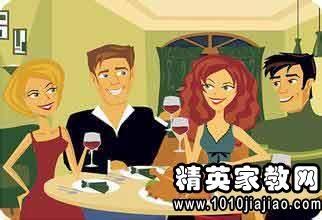
2.中国餐桌礼仪英语10句简单
1.让客人和长辈先吃每一道菜 let the elder people and the customer eat first2.不要用筷子敲碗 don't use the chopsticks hit the bowl3.不要将手伸到饭桌对面夹菜 don't reach to get the food on the opposite side4.等大家到齐了,才开始吃 don't eat until everyone is there5.为主人的长寿、健康、成功干杯 wish for the people who host the dinner 久仰,久仰!I have long been looking forward to meeting you.I have long desired to meet you.久违了。
I haven't seen you for ages/for a long time.It's been such a long time since we met last time.久闻大名。I've heard a lot about you.这次由我负责全程陪同你们。
I will be with you for the entire visit/trip. 欢迎你到中国来。一路上辛苦了! / 一路上还好吧?Welcome to China.I hope you've had a good flight. 或I hope you enjoyed your flight. / How was your journey?谢谢你专程来接我。
Thank you very much for coming all the way to meet me.您贵姓?/您怎么称呼?May I know your name,please?很高兴见到你。您怎么称呼7 Glad/Pleased to meet you,Misterr…?(可以用拖长问话的办法来询问对方的姓名) 中国有句古话说:“有朋自远方来不亦乐乎?” There's an old saying in Chinese which goes: “Isn't it a great pleasure/joy to have friends coming from afar?As a Chinese saying goes, “Nothing is more delightful than meeting friends from far away.” 这是给您准备的日程安排.我们简单过一遍吧。
如果你有什么特殊要求.也可以告诉我。This is the tentative itinerary/schedule I have prepared for you.Let's go through it together.If there is any special request,just let me know. 如果有什么需要帮忙的.尽管说。
If you need anything,don't hesitate to ask. Just let me know if you need anything.我们安排你住在城里的……酒店.离我们公司开车要走40分钟。We've arranged for you to stay in…Hotel,which is in the downtown area,about 40- minute drive from our company. 我们也有宾馆,不过条件不如酒店。
离单位倒是很近.走路就可以到。We have our own guest house,but there is no comparison between the two, only the guest house is within walking distance of the workplace. 除了正式会谈以外.我们也为大家安排了一些游览活动。
In addition to official meetings,we have also arranged some sightseeing. 我期待着您的再次来访。I'm looking forward to your visit again. 代我向……问好。
Remember me to… / Say hello to…for me. 不用谢,这是我们应该做的。Don't mention it. It's my pleasure.欢迎再来!Do come again.。
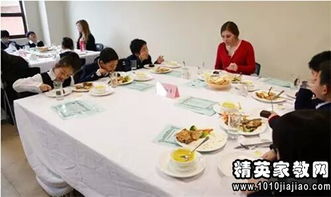
3.中国餐桌礼仪英文
Chinese table etiquette boils down to the following points: 1. Admission etiquette. Ask guests seated on the seats. Please elderly guests in attendance were seated next to attendance at from the left side into the chair. Admission Dongkuaizi not after. What more do not come to beep. Not to get up walk. If what happened to the owner notice. Second, when the meal. Ask guests. Long the Dongkuaizi. Jiacai, each less. Far from the food on their own eat some. Meal not a voice. Heshang also not a sound use Kaitang I spoon a small drink and a small mouth. Pawan front-lips not drink, soup, hot cool after Zaikai. side not to drink while blowing Some people prefer to chew food to eat. extraordinary feel like work is crisp chewing food, a very clear voices. this is not etiquette demands. extraordinary and everyone is eating together, as far as possible to prevent the emergence of this phenomenon. Third: Do not eat hiccup, other voices will not arise if there sneezing, Changming involuntarily, such as the sound, it is necessary to say "I am sorry."; I am sorry;. "Of the original cooler." Within the words . to show regret. Fourth if guests or elders give cloth dish. Best use of chopsticks may also be the guests or elders far away from the dishes to their front, according to the habit of the Chinese nation. Dish is a one of the Top. If the same tables leadership, the elderly, the guests said. Whenever of a new dish, let them first Dongkuaizi. rotation or invite them to the first Dongkuaizi. to show their importance. Fifth: eat the head, fishbone, bones and other objects, not Wangwaimian vomit, not onto the ground still. Slowly to get their hands Diezili, or close on their own or on Canzhuobian prepared beforehand good on paper. Sixth: To a timely manner about the time and people just a few humorous, to reconcile the atmosphere. Guangzhaotou not eat, regardless of others, and do not devour and destroy the lavish meal, not jail sentence. 7: It is best not to the dinner table Tiya if it is to Tiya, will use napkins or sign blocked their mouths. 8: To clear the main tasks of the meal. Must be clear to do business oriented. Feelings or to the main contact. Mainly or to eat. If it is the former, when attention should be paid to the seating arrangements. Their main negotiators the seats near each other to facilitate conversations, or dredge emotion. If it is the after. need only pay attention to common-sense courtesy on the line, to focus on the appreciation of dishes, 9: The last time left. Must be expressed gratitude to the host. At the invitation of the owner or to their own homes after the house to show back China is the etiquette of helping people, Minsishiweitian, dining How can no rules! While stressing that no attention is three meals a day, but do not know know better than OK! 1. Inviting guests to notice, Ruxi 6:00, 5:50才叫your elderly guests, it does not. 2. Hosts who looked to be late; guests should be 5-10 minutes late, and this is very considerate guests Oh, and pay attention to grasp, natural host and the guest are Huan. 3. If sit round a table, facing the door of the main blocks, or back * walls, counters; emphasize some hotels will be used napkins distinction, the highest position napkins can not casually sit Oh, unless you intend to good banquet woven?: D 4. Masters of the subject and object of the right hand side, the left hand side of the important guests; * gate facing the master, of course, is run errands entertain the Peiqia sit you. 5. Guests do not directly to the members of a la carte and calling guidance, obediently waiting for the hosts who looked to be a la carte if guests really serious taboos or hobbies, and should be gently told the hosts who looked, the owner of natural putting his interests and meet guests little or significantly requirements. 6. Hosts who looked not need points or less grasping points, or holding food dishes, such as crab, lobster legs, ribs, and so on. For a meal to the three dishes such a rule no. What can be said etiquette! 7. Not a small amount of force will not object to others drink wine without fragmentation feast! 8. On the wine servings! Foreigner likes to boast of skill, people may boast their own point-for the food, hosts who looked at carefully observed Liangcai Qi, every Cup have drinks later, when immediately drank to welcome the start. . . Like, rotating disk or right hand side indicate the subject and object moving first chopsticks. Tuirang subject and object should not be too long, oh, we stomachs are hungry, it will eat you open! Do not forget to eat the praise of some oh. 9. After one of every dish, although the waiter and owner will still go before the subject and object, but not too rigidly stick with 。
4.英语作文 在中国的餐桌礼仪
Chinese table manners Table manners in Chinese life and order in the full possession of a very important position, they believe, eating is not only way to meet their basic physiological needs method -- is also of paramount importance social experience. To this end, grasp the knowledge of the rules in some Chinese restaurants have become particularly important, whether you are a master, or merely a guest, must have some rules. 餐桌礼仪在中国人的完整生活秩序中占有一个非常重要的地位,他们认为,用餐不单是满足基本生理需要的方法———也是头等重要的社交经验。
为此,掌握某些中式餐饮规则的知识便显得特别重要了,无论你是主人,抑或只是一位客人,都必须掌握一些规则。 The round table is popular. Because they can sit more people, and we can sit face to face, the head of the family identity and not long shaped the West on the table very clearly through his seat and identification. Guests should be invited to sit down and wait for the owner. The owner must be careful not to call the guests sitting in a seat near the table. This is a taboo.Will have to wait until all the people here can only be the beginning of any form of dining activities -- even if they have to wait for being late. Once you master home place, can do the prologue. During the meal, the owner must assume a proactive role -- urging guests enjoy eating and drinking is entirely reasonable. ●圆形餐桌颇受欢迎。
因为可以坐更多人,而且大家可以面对面坐,一家之主的身份并不像西方长形餐桌上很清楚地通过他的座位而辨认。客人应该等候主人邀请才可坐下。
主人必须注意不可叫客人坐在*近上菜的座位。此为一大忌。
必须等到所有人到齐才可以开始任何形式的进餐活动———即使有人迟到也要等。一旦大家就位,主人家便可以做开场白了。
进餐期间,主人必须承担一个主动积极的角色———敦促客人尽情吃喝是完全合理的。 In a typical Chinese-style table looks quite empty, in the eyes of Westerners, especially. Each seat can be seen on the front wheel on a bowl; right is a set of chopsticks and spoons, were placed in their own seat. In formal occasions, there will be napkins, mainly on the lap. In a formal banquet, the dishes of eating like a slide show, each time a dish. Surprisingly, rice, not with the dishes ibid, but you can choose to eat the same. As the dishes have their special characteristics, it should be for individual taste, but once only from a bowl to eat, not mixed taste. Plate is not available to eat, can only bowl. Bones and shells on the individual disk. Not clean the dishes must always be replaced with clean plates. ●一张典型中式餐桌看上去相当空,在西方人眼中尤甚。
每张座位前可见放在盘上的一只碗;右面是一组筷子与汤匙,分别放在各自的座上。在正式场合上,会出现餐巾,主要放在膝上。
在正式宴席上,菜式的吃法很像放映的幻灯片,每一次一道菜。令人惊讶的是,米饭不是与菜式同上,不过可以选择同吃。
由于菜式各有特色,应该个别品尝,而且一次只从碗中吃一种,不是混合品尝。不可用盘子吃,只能用碗。
骨头和壳类放在个别盘中。不干净的盘子必须经常用清洁盘子替换。
in addition to Tom, the gallery of all the food with chopsticks. May provide a knife and fork, but as the Chinese people, it is best to use chopsticks. Chopsticks are eating a tool, so do not play with the chopsticks -- take them when the drumstick is a very rude way, but can not use chopsticks pointing to the person or motioned. Of course, absolutely can not suck or to chopsticks chopsticks inserted in rice, it is Taboo -- this is like the funeral of incense, is considered unlucky. Again, can not use chopsticks in a non-stop flipping Diecai years, should be the first sights with your eyes you want to get food. When you use chopsticks to pick up one of the food, try to avoid the encounter other food. If possible, use public chopsticks and spoons beside. After dinner or take the food after the end, will chopsticks chopsticks back seat. ●除了汤之外,席上一切食物都用筷子。可能会提供刀*,但身为中国人,最好用筷子。
筷子是进餐的工具,因此千万不可玩弄筷子———把它们当鼓槌是非常失礼的做法,更不可以用筷子向人指指点点或打手势示意。当然,绝对不可吸吮筷子或把筷子插在米饭中,这是大忌———这正好像葬礼上的香烛,被认为是不吉利的。
再有,不可用筷子在一碟菜里不停翻动,应该先用眼睛看准你想取的食物。当你用筷了去取一块食物时,尽量避免碰到其他食物。
可能的话,用旁边的公筷和汤匙。吃完饭或取完食物后,将筷子放回筷子座。
A seat Chinese restaurant without a formal tea and can not claim. Therefore, as far as possible, the storage of different varieties of tea is a sensible approach, to ensure the most sophisticated taste is also taken into account. Issues 。
5.中国餐桌礼仪英文10条
1. On arrival one should first introduce oneself, or let the master of the banquet do the introduction if unknown to others, and then take a seat in accordance with the master of the banquet's arrangement.到达时,应当先介绍自己,或者让宴会主人介绍你,然后按照宴会主人的安排就座。
2. Let older people eat first, or if you hear an elder say "let's eat", you can start to eat. You should not steal a march on the elders.让老人先吃,或者如果你听到老人说“我们吃吧”,你才可以开始吃了。你不应该对老年人抢先一步。
3. If the guest of honor or most senior member is not seated, other people are not allowed to be seated. If he hasn't eaten, others should not begin to eat.如果贵宾或大多数主要成员没有就座,其他人就不能就座。如果他没吃东西,别人就不应该开始吃。
4. When finding your favorite dish, you should not gobble it up as quickly as possible or put the plate in front of yourself and proceed to eat like a horse.当你发现你最喜欢的菜肴时,你不应该快快地狼吞虎咽,或者把盘子放在自己面前,然后像马一样吃下去。5. You should consider others at the table. If there is not much left on a plate and you want to finish it, you should consult others. If they say they don't want any more, then you can eat proceed.你应该考虑餐桌上的其他人。
如果盘子里没有剩下多少东西时,你想吃了它,你应该咨询其他人。如果他们说他们不想再吃了,你可以继续吃。
6. Concentrate on the meal and your companions. Watching television, using your phone, or carrying on some other activity while having a meal is considered a bad habit.集中精神在吃饭和你的同伴身上。边吃饭边看电视、打电话或进行其他活动被认为是坏习惯。
7. You should try to refill your bowl with rice yourself and take the initiative to fill the bowls of elders with rice and food from the dishes. If elders fill your bowl or add food to your bowl, you should express your thanks.你应该试着自己给碗里装满米饭,主动给老人的碗里装满米饭和盘子里的食物。如果长辈们把碗装满或给你的碗里加了食物,你应该表达你的谢意。
8. When someone pours tea into your cup, you can tap the table with your first two fingers two or three times, showing thanks to the pourer for the service and of being enough tea. The pourer will stop pouring when seeing the gesture.当有人把茶倒进你的杯子时,你可以用头两三个手指轻敲桌子,以表示感谢倒茶人的服务以及茶的充足。当看到那个手势时,倾倒者会停止倾倒。
9. It is not good manners to pick up too much food at a time. You should behave elegantly. When taking food, don't nudge or push against your neighbor. Don't let the food splash or let soup or sauce drip onto the table.一次吃太多东西是不礼貌的。你应该举止优雅。
吃东西时,不要推或推你的邻居。不要让食物飞溅或让汤或酱汁滴到桌子上。
10. When eating, you should close your mouth to chew food well before you swallow it, which is not only a requirement of etiquette, but also better for digestion. You should by no means open your mouth wide, fill it with large pieces of food and eat up greedily.吃东西时,在吞下食物之前要先闭上嘴咀嚼,这不仅是礼仪的要求,而且对消化也有好处。千万不要张大嘴巴,嘴里塞满大块食物,贪婪地吃下去。
6.用英语写出一些中国的餐桌礼仪
China Dining Custom Table Manners The main difference between Chinese and western eating habits is that unlike the West, where everyone has their own plate of food, in China the dishes are placed on the table and everybody shares. If you are being treated by a Chinese host, be prepared for a ton of food. Chinese are very proud of their culture of cuisine and will do their best to show their hospitality.And sometimes the Chinese host use their chopsticks to put food in your bowl or plate. This is a sign of politeness. The appropriate thing to do would be to eat the whatever-it-is and say how yummy it is. If you feel uncomfortable with this, you can just say a polite thank you and leave the food there.Eating No-no's Don't stick your chopsticks upright in the rice bowl.Instead,lay them on your dish. The reason for this is that when somebody dies,the shrine to them contains a bowl of sand or rice with two sticks of incense stuck upright in it. So if you stick your chopsticks in the rice bowl, it looks like this shrine and is equivalent to wishing death upon a person at the table!Make sure the spout of the teapot is not facing anyone. It is impolite to set the teapot down where the spout is facing towards somebody. The spout should always be directed to where nobody is sitting, usually just outward from the table.Don't tap on your bowl with your chopsticks.Beggars tap on their bowls, so this is not polite.Also, when the food is coming too slow in a restarant, people will tap their bowls. If you are in someone's home,it is like insulting the cook.Drinking Gan Bei! (Cheers! “Gan Bei” literally means “dry [the] glass”) Besides beer, the official Chinese alcoholic beverage is Bai Jiu,high-proof Chinese liquor made from assorted grains. There are varying degrees of Bai Jiu. The Beijing favorite is called Er Guo Tou, which is a whopping 56% alcohol. More expensive are Maotai and Wuliangye. - - - - -------------------------------------------------------------------------- Of course, the main difference on the Chinese dinner table is chopsticks instead of knife and fork, but that's only superficial. Besides, in decent restaurants, you can always ask for a pair of knife and fork, if you find the chopsticks not helpful enough. The real difference is that in the West, you have your own plate of food, while in China the dishes are placed on the table and everyone shares. If you are being treated to a formal dinner and particularly if the host thinks you're in the country for the first time, he will do the best to give you a taste of many different types of dishes. The meal usually begins with a set of at least four cold dishes, to be followed by the main courses of hot meat and vegetable dishes. Soup then will be served (unless in Guangdong style restaurants) to be followed by staple food ranging from rice, noodles to dumplings. If you wish to have your rice to go with other dishes, you should say so in good time, for most of the Chinese choose to have the staple food at last or have none of them at all. Perhaps one of the things that surprises a Western visitor most is that some of the Chinese hosts like to put food into the plates of their guests. In formal dinners, there are always “public” chopsticks and spoons for this purpose, but some hosts may use their own chopsticks. This is a sign of genuine friendship and politeness. It is always polite to eat the food. If you do not eat it, just leave the food in the plate. People in China tend to over-order food, for they will find it embarrassing if all the food is consumed. When you have had enough, just say so. Or you will always overeat!。
7.有关中国的餐桌礼仪文章,用英语怎么写
China Dining CustomTable MannersThe main difference between Chinese and western eating habits is that unlike the West, where everyone has their own plate of food, in China the dishes are placed on the table and everybody shares. If you are being treated by a Chinese host, be prepared for a ton of food. Chinese are very proud of their culture of cuisine and will do their best to show their hospitality.And sometimes the Chinese host use their chopsticks to put food in your bowl or plate. This is a sign of politeness. The appropriate thing to do would be to eat the whatever-it-is and say how yummy it is. If you feel uncomfortable with this, you can just say a polite thank you and leave the food there.Eating No-no'sDon't stick your chopsticks upright in the rice bowl.Instead,lay them on your dish. The reason for this is that when somebody dies,the shrine to them contains a bowl of sand or rice with two sticks of incense stuck upright in it. So if you stick your chopsticks in the rice bowl, it looks like this shrine and is equivalent to wishing death upon a person at the table!Make sure the spout of the teapot is not facing anyone. It is impolite to set the teapot down where the spout is facing towards somebody. The spout should always be directed to where nobody is sitting, usually just outward from the table.Don't tap on your bowl with your chopsticks.Beggars tap on their bowls, so this is not polite.Also, when the food is coming too slow in a restarant, people will tap their bowls. If you are in someone's home,it is like insulting the cook.DrinkingGan Bei! (Cheers! “Gan Bei” literally means “dry [the] glass”) Besides beer, the official Chinese alcoholic beverage is Bai Jiu,high-proof Chinese liquor made from assorted grains. There are varying degrees of Bai Jiu. The Beijing favorite is called Er Guo Tou, which is a whopping 56% alcohol. More expensive are Maotai and Wuliangye。
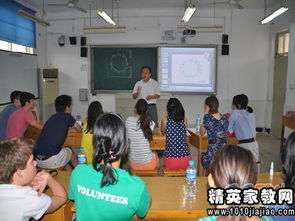

 100
100 2022-06-28 05:06
2022-06-28 05:06